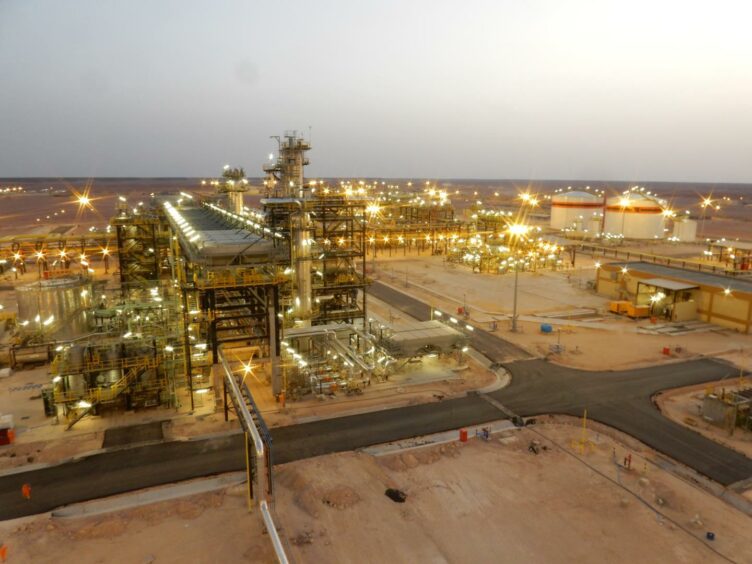
Neptune Energy reported pre-tax profits of $1.4 billion (£1.1bn) for 2021, but noted ongoing issues with key assets in Norway and Algeria.
Announcing its full-year results on Thursday the global, gas-focused independent hailed a “strong operating environment” in 2021 which boosted revenue by nearly $1bn to $2.49bn, and turned around pre-tax losses of more than $300 million (£228m) the year before.
EBITDAX totaled $2.1bn (£1.6bn) while operating cash flow reached $1.7bn (£1.3bn). The group’s 2P reserves also increased to 604 million barrels of oil equivalent (boe).
Full-year production averaged 130,000 boepd, at the lower end of guidance, though production-equivalent insurance income lifts total economic production to 148,300 boepd.
Neptune said new projects in Norway and Indonesia added 26,000 boepd of new production, however an extension to outages at the Equinor-operated Hammerfest LNG facility, which processes gas produced from the Snøhvit field, and a further outage at the joint venture-operated Touat gas plant in Algeria in the fourth quarter led to a drag on production.
The company said it was working with its partners to bring the assets back online “safely and swiftly.”
Production from UK assets averaged around 15,000 boepd.
Its guidance for 2022 expects production to average 135-145,000 boepd for the year, subject to these projects restarting. Longer term, Neptune said new projects in development in Norway and the UK would increase production to around 170,000 boepd by the end of 2023, while additional unsanctioned development opportunities across its portfolio could provide further growth.
Development capital expenditure will decline this year to around $600m (£455m), it added, with investments committed mainly to Njord, Fenja and Seagull. Exploration and pre-development spend will also fall to around $130m (£99m).
Plans include the drilling of up to 11 new exploration and appraisal wells in 2022, including prospects in Norway, the UK and Egypt.
In Norway Neptune pointed to three wells, including the Ofelia and Hamlet prospects, which are located within tie-back distance to Gjøa and the Calypso prospect located within tie-back distance to Njord or Draugen.
In the UK, it reaffirmed that the Isabella appraisal well would be spudded in the second half of the year, Neptune holds a 50% non-operated stake in the prospect, alongside operator TotalEnergies (30%), Ithaca Energy (10%), and Euroil Exploration (10%).
Results from the well would be due in mid-2023, which will support commercial decisions on what Neptune called “a potentially significant future development.”
Four wells are slated for drilling in the Netherlands, including the F5-A well deferred from its 2021 programme.
In Egypt, Neptune said it expects to drill the Yakoot prospect in the fourth quarter of 2022, while it also progresses plans for a “high impact” exploration drilling campaign in Indonesia next year, which has the potential to open opportunities for a new hub development.
Neptune said it expects to generate further “strong cash flow” this year on the back of bullish commodity prices, which would fully fund its development projects.
Executive chairman Sam Laidlaw said: “Neptune delivered a strong financial performance in 2021, driven by higher economic production and stronger commodity prices, particularly towards the end of the year. Our natural gas-weighted and OECD-focused business continues to position us well for current macro trends, including the energy transition.
“We have strengthened our commitment to lowering carbon emissions and have reshaped areas of the business to reflect our investment priorities and to accelerate our lower carbon projects, including the electrification of more of our production. We now aim to store more carbon than is emitted from our operations and the use of our sold products by 2030.”
Neptune’s capex in Algeria was $20mn in 2021 but the company said this would increase slightly in 2022. It is working on plans for a second phase of development at Touat, along with debottlenecking and plant upgrades.
The company expects to award front-end engineering and design (FEED) work in 2022, aiming for start up in 2026. This will push the plateau of production back into the late 2020s and will involve 16 production wells.
Updated at 2:21 pm with additional notes on Touat expansion.
Recommended for you
